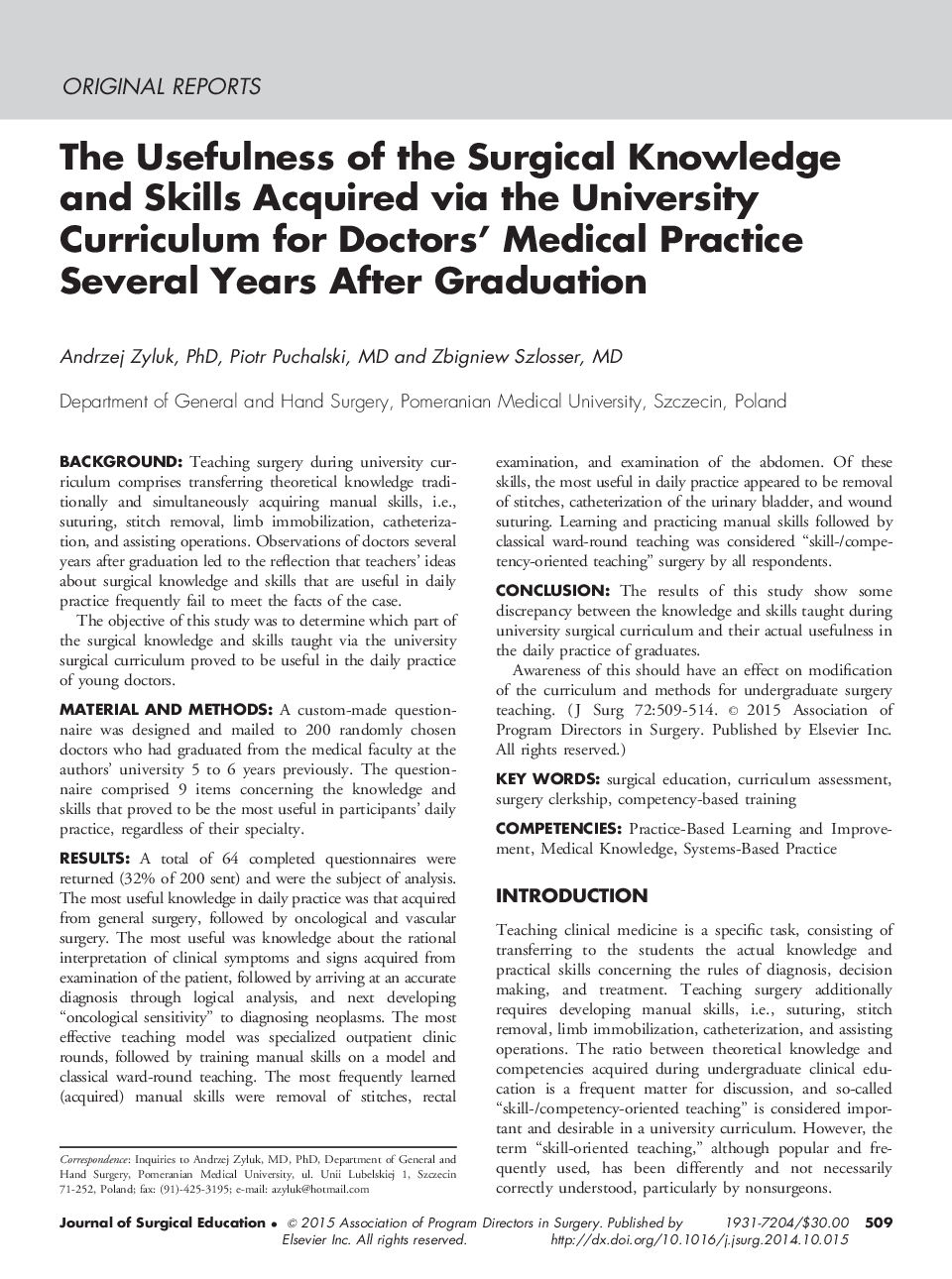| کد مقاله | کد نشریه | سال انتشار | مقاله انگلیسی | نسخه تمام متن |
|---|---|---|---|---|
| 4297761 | 1288330 | 2015 | 6 صفحه PDF | دانلود رایگان |

BackgroundTeaching surgery during university curriculum comprises transferring theoretical knowledge traditionally and simultaneously acquiring manual skills, i.e., suturing, stitch removal, limb immobilization, catheterization, and assisting operations. Observations of doctors several years after graduation led to the reflection that teachers’ ideas about surgical knowledge and skills that are useful in daily practice frequently fail to meet the facts of the case.The objective of this study was to determine which part of the surgical knowledge and skills taught via the university surgical curriculum proved to be useful in the daily practice of young doctors.Material and MethodsA custom-made questionnaire was designed and mailed to 200 randomly chosen doctors who had graduated from the medical faculty at the authors’ university 5 to 6 years previously. The questionnaire comprised 9 items concerning the knowledge and skills that proved to be the most useful in participants’ daily practice, regardless of their specialty.ResultsA total of 64 completed questionnaires were returned (32% of 200 sent) and were the subject of analysis. The most useful knowledge in daily practice was that acquired from general surgery, followed by oncological and vascular surgery. The most useful was knowledge about the rational interpretation of clinical symptoms and signs acquired from examination of the patient, followed by arriving at an accurate diagnosis through logical analysis, and next developing “oncological sensitivity” to diagnosing neoplasms. The most effective teaching model was specialized outpatient clinic rounds, followed by training manual skills on a model and classical ward-round teaching. The most frequently learned (acquired) manual skills were removal of stitches, rectal examination, and examination of the abdomen. Of these skills, the most useful in daily practice appeared to be removal of stitches, catheterization of the urinary bladder, and wound suturing. Learning and practicing manual skills followed by classical ward-round teaching was considered “skill-/competency-oriented teaching” surgery by all respondents.ConclusionThe results of this study show some discrepancy between the knowledge and skills taught during university surgical curriculum and their actual usefulness in the daily practice of graduates.Awareness of this should have an effect on modification of the curriculum and methods for undergraduate surgery teaching.
Journal: Journal of Surgical Education - Volume 72, Issue 3, May–June 2015, Pages 509–514